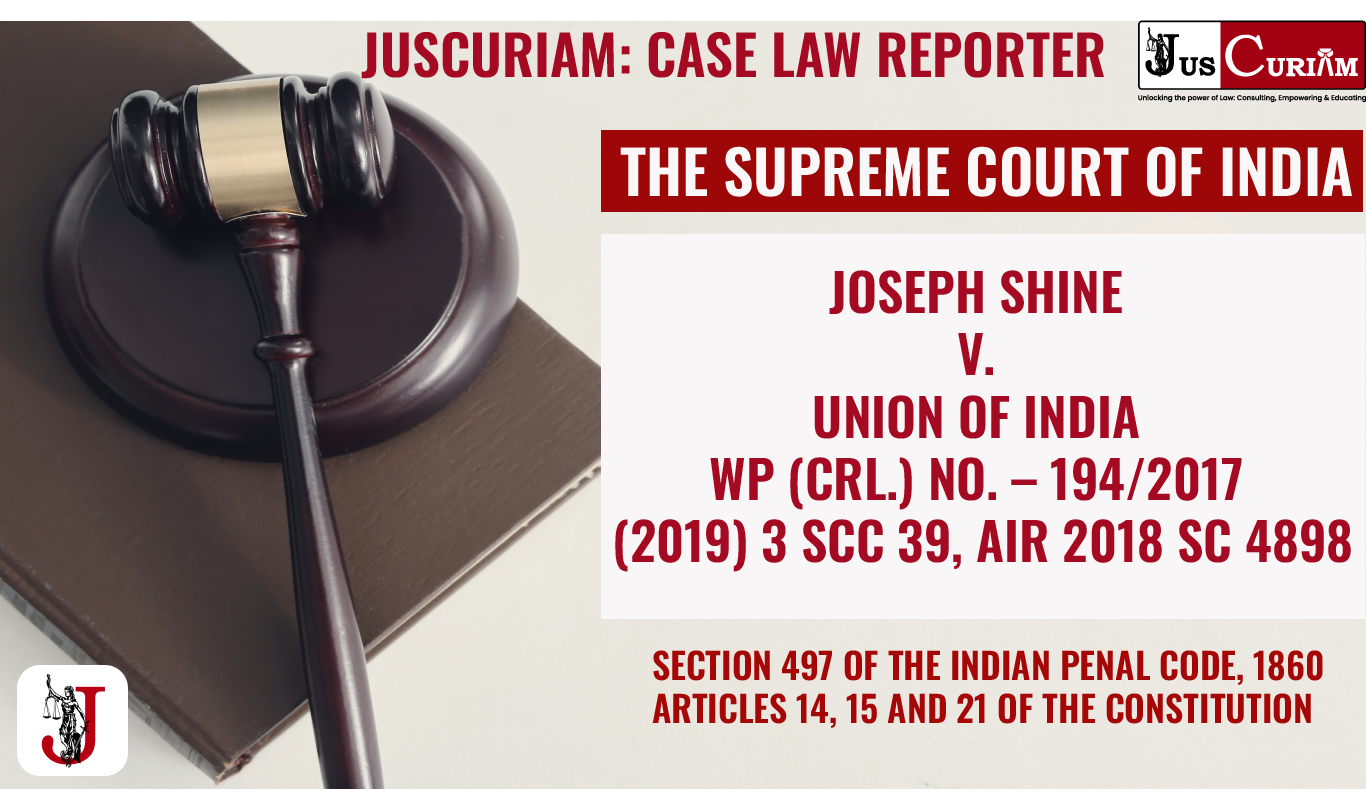(2019) 3 SCC 39, AIR 2018 SC 4898
Decriminalization of Adultery- decided on 27.09.2018)
The Supreme Court of India decriminalized adultery in a landmark judgment aimed at upholding the right to equality and freedom, scrapping a law first brought in under British colonial rule in 1860. In a unanimous judgment, the five-member bench of the top court struck down a law that meant a man who had sex with a married woman without getting her husband’s permission could be charged and face up to five years in jail if convicted.
“The right to privacy depends on the exercise of autonomy and agency by individuals. In situations where citizens are disabled from exercising these essential attributes, Courts must step in to ensure that dignity is realized in the fullest sense. Familial structures cannot be regarded as private spaces where constitutional rights are violated. To grant immunity in situations when the rights of individuals are under siege, is to obstruct the unfolding vision of the Constitution.”
This case is most famous as an “adultery decriminalization case” or “Joseph Shine adultery case”.
Case Brief:
The constitutionality of Section 497 of the Indian Penal Code, 1860 (IPC), which dealt with the criminal offence of adultery, and Section 198(2) of the Code of Criminal Procedure, 1973 (CrPC), which stated that only the husband of a person accused of adultery would be considered to be harmed by the commission of an offence under Section 497, was challenged in 2017 by Joseph Shine, an Indian citizen living in Italy.
Section 497 of The Indian Penal Code, 1860:
Section 497 of the IPC criminalized adultery: it imposed culpability on a man who engages in sexual intercourse with another man’s wife. Adultery was punishable by a maximum prison sentence of five years. Women, though, were exempt from prosecution. Section 497 of the IPC was inapplicable when a married man engaged in sexual intercourse with an unmarried woman.
Because it contravened Articles 14, 15, and 21 of the Constitution, the Supreme Court invalidated Section 497 of the IPC. The five-judge bench ruled unanimously in four concurring judgments that the statute violated a woman’s liberty, dignity, and privacy and was outdated, arbitrary, and condescending. The CrPC’s Section 198(2), which restricted who could file charges under Section 497 of the IPC to a husband, was also declared invalid. The court’s earlier rulings upholding the constitutionality of Section 497 in Yusuf Abdul Aziz v. State of Bombay (1954 SCR 930), Sowmithri Vishnu v. Union of India (1985 Supp SCC 137), and Vishnu Revathi v. Union of India (1988) 2 SCC 72 were overruled by this one.
In order to support the necessity to safeguard sexual autonomy and the privacy of the married domain, the various judgments analyzed the advancements in the right to privacy in some depth and cited K.S. Puttaswamy v. Union of India ((2017) 10 SCC 1). While the failure of spouses to be faithful to one another may have severe consequences, the Court decided that it would be up to the parties to decide how to proceed, whether by filing for divorce or in another way, and that imposing criminal punishments would be pointless.
Go for legal updates at www.juscuriam.com
